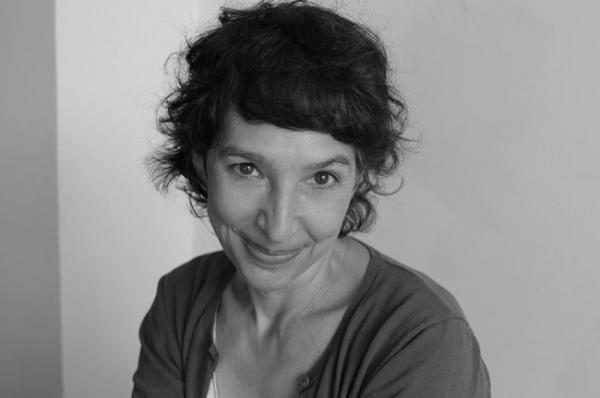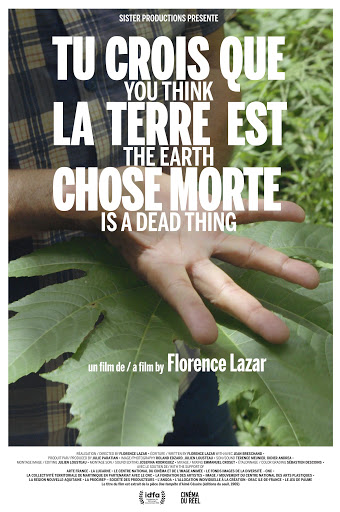Fiche Personne
Cinéma/TV

Florence Lazar
Réalisateur/trice, Acteur/trice
(Femme)
France

Site web : http://www.florencelazar.fr
Français
Florence Lazar (née à Paris en 1966) est artiste, cinéaste et photographe. Elle s’attache dans son œuvre à faire surgir des récits minoritaires dans des contextes géographiques et sociaux particuliers. Le recours à l’enquête et l’attention portée au processus de transmission de l’histoire sont au cœur de son travail.[…]
À la fin des années 1990, au sortir des guerres en ex-Yougoslavie, Florence Lazar se saisit d’une caméra vidéo et se rend sur place. Elle a besoin de comprendre ce qui vient d’avoir lieu sur ce territoire tout à la fois proche, par son histoire familiale, et étranger, parce qu’elle vit en France et n’en parle pas la langue. La forme documentaire fait ainsi irruption et s’impose durablement dans son œuvre.
L’artiste a ainsi réalisé un ensemble de films sur différentes situations issues du conflit en ex-Yougoslavie (la fin de la guerre, la chute de Milošević, la création d’une cour spéciale à Belgrade pour juger les crimes de guerre, la réécriture de l’histoire en République serbe de Bosnie).
Parallèlement, elle a exploré d’autres contextes géographiques et sociaux, en s’intéressant à la restructuration urbaine d’une ville de la banlieue parisienne, Montfermeil, ou plus récemment, aux conséquences de l’usage massif du pesticide Chlordécone dans les bananeraies antillaises.
L’ensemble de ces œuvres propose une relecture des évènements et questionne la notion de transmission dans des contextes d’entravement ou d’effacement de la mémoire collective. Ces problématiques se poursuivent dans son travail photographique où sont réanimés les débats nationaux et transnationaux autour de la période de la décolonisation et des fragments de l’histoire de la gauche autogestionnaire française.[…]
Dans le film Les Paysans tourné en 2000 au sortir de la guerre, un paysan serbe livre sa vision du régime de Milošević. Kamen – Les Pierres (2014) retrace la manière dont la falsification de l’histoire s’impose comme prolongement de l’épuration ethnique dans l’actuelle République serbe de Bosnie. Faisant entendre une voix dissidente et féministe, le groupe de parole des Femmes en noir (2002) montre un hors-champ de la guerre en ex-Yougoslavie. Dans Confession d’un jeune militant (2008), le père de l’artiste présente sa bibliothèque et redessine un cheminement intellectuel et militant à travers la gauche française.
Les photographies et les films de Florence Lazar interrogent la fonction de témoignage de toute représentation, lorsque celle-ci se mesure au récit d’événement qui mettent en péril l’humanité. Ses films questionnent les conditions du regard, de perception d’une actualité dans son contexte. Enregistrés directement sur le terrain, en ex-Yougoslavie, en Serbie, au Monténégro et en Croatie, ils traitent de l’événement comme un étirement de l’actualité et de sa possible traduction.
Dans un lieu où le discours sur les affirmations identitaires a conduit à essentialiser les différences et à légitimer un affrontement, les films de Florence Lazar mettent en situation la parole de personnes engagées et minoritaires, prennent pour point de départ un fait de micro histoire ou un récit qui permet d’ouvrir une brèche sur ces évènements complexes et d’en préciser les processus réels.
(Source : Jeu de Paume et site de l’auteure)
À la fin des années 1990, au sortir des guerres en ex-Yougoslavie, Florence Lazar se saisit d’une caméra vidéo et se rend sur place. Elle a besoin de comprendre ce qui vient d’avoir lieu sur ce territoire tout à la fois proche, par son histoire familiale, et étranger, parce qu’elle vit en France et n’en parle pas la langue. La forme documentaire fait ainsi irruption et s’impose durablement dans son œuvre.
L’artiste a ainsi réalisé un ensemble de films sur différentes situations issues du conflit en ex-Yougoslavie (la fin de la guerre, la chute de Milošević, la création d’une cour spéciale à Belgrade pour juger les crimes de guerre, la réécriture de l’histoire en République serbe de Bosnie).
Parallèlement, elle a exploré d’autres contextes géographiques et sociaux, en s’intéressant à la restructuration urbaine d’une ville de la banlieue parisienne, Montfermeil, ou plus récemment, aux conséquences de l’usage massif du pesticide Chlordécone dans les bananeraies antillaises.
L’ensemble de ces œuvres propose une relecture des évènements et questionne la notion de transmission dans des contextes d’entravement ou d’effacement de la mémoire collective. Ces problématiques se poursuivent dans son travail photographique où sont réanimés les débats nationaux et transnationaux autour de la période de la décolonisation et des fragments de l’histoire de la gauche autogestionnaire française.[…]
Dans le film Les Paysans tourné en 2000 au sortir de la guerre, un paysan serbe livre sa vision du régime de Milošević. Kamen – Les Pierres (2014) retrace la manière dont la falsification de l’histoire s’impose comme prolongement de l’épuration ethnique dans l’actuelle République serbe de Bosnie. Faisant entendre une voix dissidente et féministe, le groupe de parole des Femmes en noir (2002) montre un hors-champ de la guerre en ex-Yougoslavie. Dans Confession d’un jeune militant (2008), le père de l’artiste présente sa bibliothèque et redessine un cheminement intellectuel et militant à travers la gauche française.
Les photographies et les films de Florence Lazar interrogent la fonction de témoignage de toute représentation, lorsque celle-ci se mesure au récit d’événement qui mettent en péril l’humanité. Ses films questionnent les conditions du regard, de perception d’une actualité dans son contexte. Enregistrés directement sur le terrain, en ex-Yougoslavie, en Serbie, au Monténégro et en Croatie, ils traitent de l’événement comme un étirement de l’actualité et de sa possible traduction.
Dans un lieu où le discours sur les affirmations identitaires a conduit à essentialiser les différences et à légitimer un affrontement, les films de Florence Lazar mettent en situation la parole de personnes engagées et minoritaires, prennent pour point de départ un fait de micro histoire ou un récit qui permet d’ouvrir une brèche sur ces évènements complexes et d’en préciser les processus réels.
(Source : Jeu de Paume et site de l’auteure)
English
Florence Lazar (born in Paris in 1966) is an artist, filmmaker and photographer. In her work, she focuses on bringing out minority narratives in particular geographical and social contexts. The use of inquiry and attention to the process of transmitting history are at the heart of her work […].
At the end of the 1990s, at the end of the wars in the former Yugoslavia, Florence Lazar grabbed a video camera and went there. She needed to understand what had just taken place in this territory, which was both close, because of her family history, and foreign, because she lived in France and didn’t speak the language. The documentary form thus makes its appearance and imposes itself durably in her work.
The artist has thus made a series of films on different situations resulting from the conflict in ex-Yugoslavia (the end of the war, the fall of Milošević, the creation of a special court in Belgrade to judge war crimes, the rewriting of history in the Serbian Republic of Bosnia).
At the same time, she has explored other geographical and social contexts, focusing on the urban restructuring of a city in the Parisian suburbs, Montfermeil, or more recently, on the consequences of the massive use of the pesticide Chlordecone in Caribbean banana plantations.
All of these works propose a re-reading of events and question the notion of transmission in contexts of hindrance or erasure of collective memory. These problematics continue in his photographic work where national and transnational debates around the period of decolonization and fragments of the history of the French self-managed left are reanimated […].
In the film Les Paysans shot in 2000 at the end of the war, a Serbian peasant delivers his vision of the regime from Milošević. Kamen – The Stones (2014) traces the way in which the falsification of history is imposed as an extension of ethnic cleansing in the current Serb Republic of Bosnia. With a dissenting and feminist voice, the women in black (2002) speaks group shows an off-screen view of the war in the former Yugoslavia. In Confession d’un jeune militant (2008), the artist’s father presents his library and redraws an intellectual and militant path through the French left.
Florence Lazar’s photographs and films question the testimonial function of any representation, when it is measured against the narrative of events that endanger humanity. Her films question the conditions of the gaze, of the perception of a current event in its context. Recorded directly in the field, in ex-Yugoslavia, Serbia, Montenegro and Croatia, they treat the event as a stretching of current events and their possible translation.
In a place where the discourse on identity assertions has led to the essentialization of differences and the legitimization of a confrontation, Florence Lazar’s films put into situation the words of committed and minority people, taking as a starting point a micro story fact or a narrative that allows us to open a breach in these complex events and to clarify their real processes.
(Source: Jeu de Paume and author’s website)
At the end of the 1990s, at the end of the wars in the former Yugoslavia, Florence Lazar grabbed a video camera and went there. She needed to understand what had just taken place in this territory, which was both close, because of her family history, and foreign, because she lived in France and didn’t speak the language. The documentary form thus makes its appearance and imposes itself durably in her work.
The artist has thus made a series of films on different situations resulting from the conflict in ex-Yugoslavia (the end of the war, the fall of Milošević, the creation of a special court in Belgrade to judge war crimes, the rewriting of history in the Serbian Republic of Bosnia).
At the same time, she has explored other geographical and social contexts, focusing on the urban restructuring of a city in the Parisian suburbs, Montfermeil, or more recently, on the consequences of the massive use of the pesticide Chlordecone in Caribbean banana plantations.
All of these works propose a re-reading of events and question the notion of transmission in contexts of hindrance or erasure of collective memory. These problematics continue in his photographic work where national and transnational debates around the period of decolonization and fragments of the history of the French self-managed left are reanimated […].
In the film Les Paysans shot in 2000 at the end of the war, a Serbian peasant delivers his vision of the regime from Milošević. Kamen – The Stones (2014) traces the way in which the falsification of history is imposed as an extension of ethnic cleansing in the current Serb Republic of Bosnia. With a dissenting and feminist voice, the women in black (2002) speaks group shows an off-screen view of the war in the former Yugoslavia. In Confession d’un jeune militant (2008), the artist’s father presents his library and redraws an intellectual and militant path through the French left.
Florence Lazar’s photographs and films question the testimonial function of any representation, when it is measured against the narrative of events that endanger humanity. Her films question the conditions of the gaze, of the perception of a current event in its context. Recorded directly in the field, in ex-Yugoslavia, Serbia, Montenegro and Croatia, they treat the event as a stretching of current events and their possible translation.
In a place where the discourse on identity assertions has led to the essentialization of differences and the legitimization of a confrontation, Florence Lazar’s films put into situation the words of committed and minority people, taking as a starting point a micro story fact or a narrative that allows us to open a breach in these complex events and to clarify their real processes.
(Source: Jeu de Paume and author’s website)
Partager :




